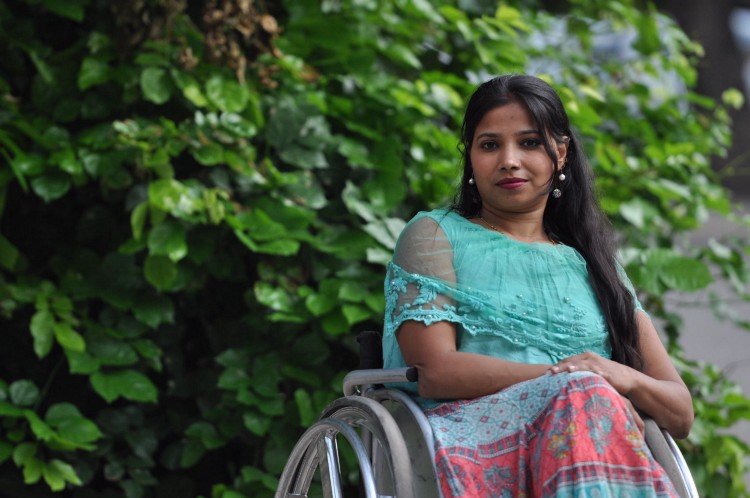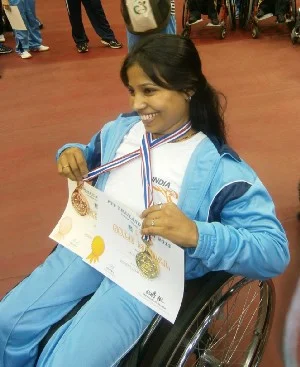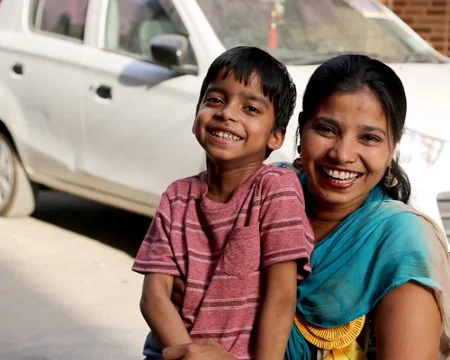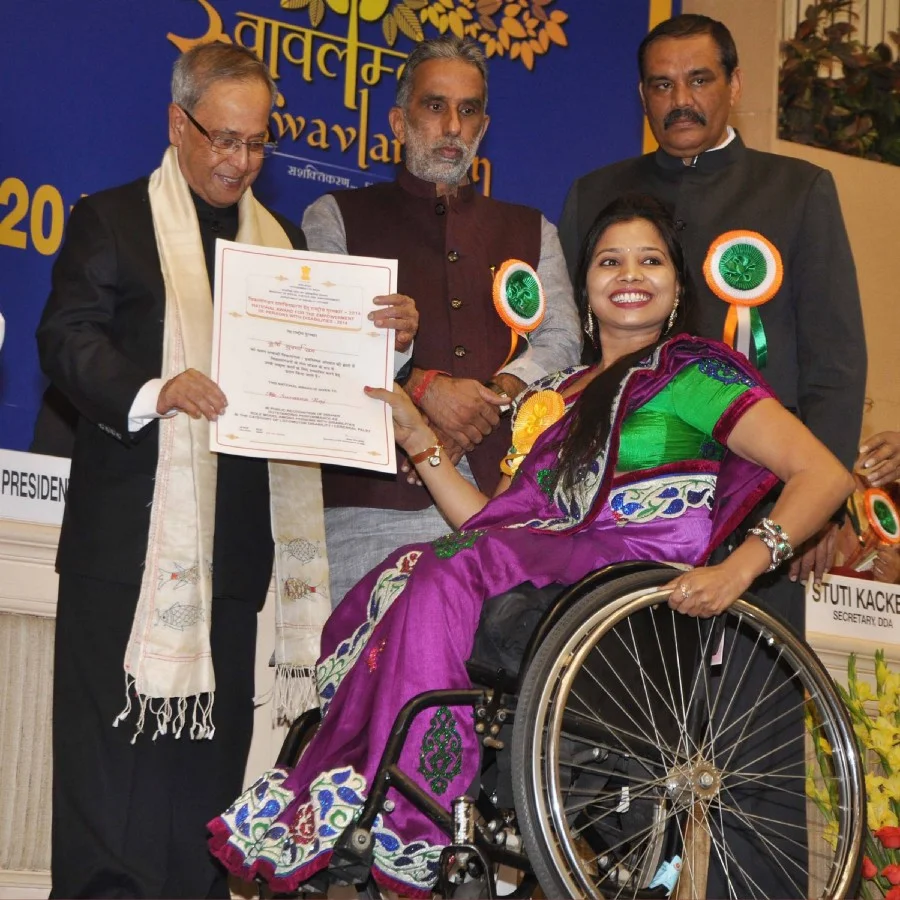Para-athlete fights for disability rights in India
(Courtesy of Suvarna Raj)
Para-table tennis star Suvarna Raj speaks out about injustices in her community and hopes to inspire her peers to follow suit.
“People like us aren’t given our rights,” says para-table tennis player Suvarna Raj. “So we have to snatch them.” And that’s exactly what Suvarna does every day as a disabilities rights activist — she fights to make India a more equal place for people with disabilities.
At age 2, Suvarna contracted polio and lost function in both her legs. Her parents couldn’t care for her at home and sent her to a school for children with disabilities.
In grade 3, Suvarna discovered powerlifting and soon qualified for youth nationals. Suvarna competed as a powerlifter for 15 years until she retired from the sport during her pregnancy. She didn’t want the strain on her body and chose to focus on school instead: “Education is a must for me. It was more important than lifting at that time.” Looking back, Suvarna couldn’t be happier about her decision — she now has two bachelor’s degrees and two master’s degrees.
Suvarna and her son Prasoon. (Courtesy of Suvarna Raj)
It wasn’t until 2005 that Suvarna discovered her talents in table tennis. She hoped to pick up a sport again, but she never expected that table tennis would take her this far. “I had played nationals since grade 4 but I never thought I could actually play internationals. It was like I had a far fetched dream and suddenly it came true.”
In 2008, Suvarna competed in her first international match at the Commonwealth Games in Pune. Since then, she represented India at several international competitions like the Asian Para Games, Asian Para Championships and Bangkok Opens.
Suvarna is proud of her accomplishments but “[Indian] society still sees people with disability as useless people. We still have to try to prove that we too can do something for our society and country. When in reality, we already have done so.”
Suvarna helps to lead several disability campaigns. Through the Indian government’s “Accessible India Campaign,” she audits buildings to check for accessibility — she already examined more than 180 buildings. Suvarna is also the Election Icon of her city — she ensures all voting spaces are disability accessible and encourages people with disabilities to vote. Suvarna received multiple awards in recognition of her advocacy, including the National Role Model Award by President of India in 2014.
Suvarna believes that change must start at schools: “People with disability and especially girls with disability don’t get the right education. Something as essential as toilets are not accessible in government schools. A girl shouldn’t have to stop her education because she can’t use the bathroom.”
Growing up, Suvarna faced her own set of challenges at school. At her school for disabled children, Suvarna “didn’t even learn the basics.” She wanted to become a doctor, but her father couldn’t afford to send her to an English-medium school — the style of education deemed more prestigious in India.
At college, Suvarna couldn’t climb the stairs to get to class. So she “made sure those classes came down to [her].” This “caused a havoc” in her college until they finally moved all the able-bodied students and teachers to the ground floor.
Suvarna also faces challenges being a para-athlete in India. “The entire Paralympic Committee of India (PCI) is run by able-bodied people,” she says. “They don’t know what our needs are.”
“People with disability and especially girls with disability don’t get the right education.”
In the past when Suvarna travelled for international games, she would be paired with caretakers she didn’t know. “The PCI would send unknown people, or send members of their own families. [Female para-athletes] would be forced to change clothes and use the bathroom with the help of a stranger,” she explains. Suvarna advocated against this practice and “brought change in the system.” Female para-athletes can now choose who to bring with them to international games.”
Although Suvarna creates meaningful change by speaking out, she laments that “not enough para-athletes do the same.” Suvarna hopes that one day every girl, para-athlete and person with disability will feel empowered to stand against injustices. Suvarna offers them this advice: “Know your rights, understand your rights and fight for your rights.”
 Read more
Read more















